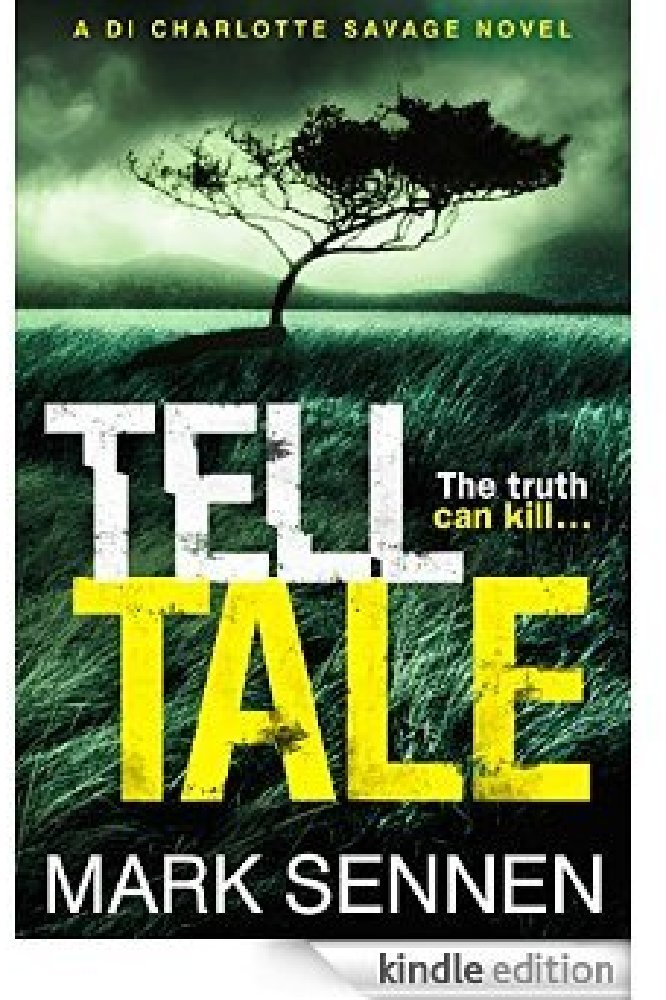
Tell Tale
Author Mark Sennen offers his top ten tips for becoming a crime writer upon the release of his new book Tell Tale.
Try to be original when creating your protagonist. There are already plenty of male detectives with relationship problems who drink too much. The world really doesn’t need any more.
Write about what you know. If you live, for instance, in Dover, you’ll be able to capture the flavour of your home town and its environs far better than if you try to write about Dublin. You’ll have first-hand experience of the geography, be aware of dozens of suitable locations for scenes and have an intimate knowledge of whatever features (industry/landscape/etc.) make your area unique. Google Street view is a poor substitute for actually having lived somewhere!
Read a few “true crime” books. Some are pretty awful and most are extremely explicit and disturbing. However, nearly all will make you realise that nothing you write will ever be as weird or gruesome as what happens in real life (see next point).
When you are crafting a particularly gruesome scene make yourself to go one step further than you are comfortable with. You can always go back and tone the scene down later, but only by pushing the boundaries can you hope to create something which really thrills the reader.
Research can be an excuse for prevarication so save the detailed stuff for when you’ve completed your first draft. You don’t need to know the exact type of poison/gun/knife used to kill your victim(s). You don’t need to get all the details of police procedure correct initially. You don’t need to physically visit every location at this stage. In short, don’t spend hours on research when you could be writing because you can “wing” nearly all the little details in the first draft and go back and fix them later on.
Spent less time watching and more reading. Sure, the latest Broadchurch might have you captivated, but the TV form is very different from that of the novel. If you’re not devouring crime fiction how are you going to know what does and doesn’t work? At least cut out those “junk” TV shows (you know the ones I mean...) and fill the time you’ve saved with reading or writing.
Unless you are possessed of iron willpower then switch your phone off when writing (yes, OFF!) and download some sort of internet blocker to ration the time you spend on social media and browsing the web.
Don’t get it right, get it written (the best piece of advice I’ve ever received). Once you’ve got some words down you can do something with your story. A blank page, on the other hand, is good only for a shopping list. So you need to write. Something. Anything. Don’t wait for your muse to turn up and whisper the words into your ear because if you can’t be bothered to make the effort to write then she certainly won’t be inclined to help you.
The hard work really begins when you have finished your first draft and begin to edit your material. The twists and turns in your crime novel need to baffle the reader, but ultimately make sense. The threads need to come together and lead to a satisfactory and - hopefully! - thrilling conclusion. Now is the time to get all the details correct and to make every scene count: The scary bits need to be scary. The creepy villain needs to be truly creepy. If, at this stage, the story is lacking try shaking things up a bit: Add an extra murder, cut some of the more boring scenes, remove a couple of incidental characters. Simply put: review, cut, revise, and hone until it’s done.
Finally, don’t give up after half-a-dozen rejection letters. With the boom in self-publishing an agent and publisher are no longer the prerequisites they once were. You can easily publish an eBook yourself. OK, so you might not emulate the DIY success of E.L. James, but you can get your work out there in front of millions of readers; ultimately that’s what it’s all about.

